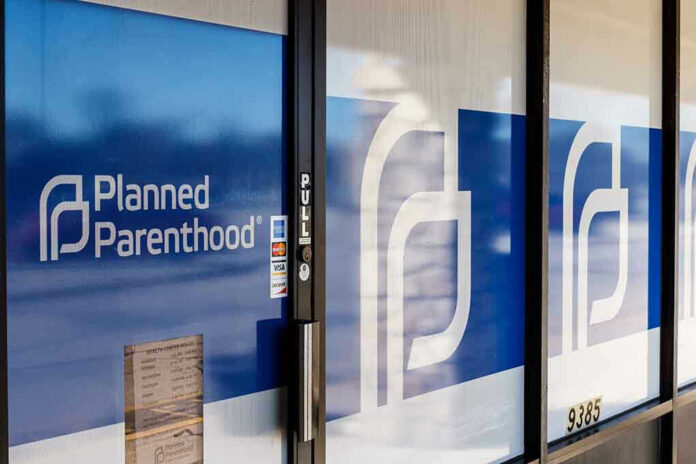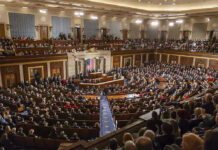
Federal Medicaid cuts have forced Planned Parenthood of Wisconsin to halt all abortion services, marking a pivotal moment in the fight over taxpayer funding and the future of reproductive healthcare in America.
Story Highlights
- Planned Parenthood of Wisconsin will stop providing abortions starting October 1, 2025, due to federal Medicaid funding cuts.
- The move is a direct result of President Trump’s One Big Beautiful Bill Act, not a change in state abortion law.
- Over 50,000 patients, many on Medicaid, will be affected, with only two independent clinics remaining statewide.
- The law signals a national precedent, sparking legal, political, and public health debates over abortion access and government spending.
Federal Policy Drives Major Shift in Wisconsin’s Abortion Landscape
Planned Parenthood of Wisconsin announced it will halt abortion appointments starting October 1, 2025, following the implementation of strict federal Medicaid funding cuts. The One Big Beautiful Bill Act, signed by President Trump in July, prohibits clinics offering abortions from receiving Medicaid reimbursements for any services. This federal action, upheld by a September federal appeals court decision, is the first to force a statewide pause in abortion services solely due to changes in federal policy. The impact is immediate and sweeping for both patients and providers.
Abortion itself remains legal in Wisconsin, but Planned Parenthood’s decision is a direct response to the new federal Medicaid rules. The organization, serving around 50,000 patients annually—60% of whom rely on Medicaid—was left with the choice to either maintain vital funding for other healthcare services or continue providing abortions and forfeit all Medicaid support. Faced with impossible financial constraints, Planned Parenthood opted to pause abortion services, affecting thousands, especially in southeast Wisconsin, and forcing many women to seek care out of state.
Key Stakeholders and Political Reactions to the Funding Cuts
The funding restrictions, authored by President Trump and Congressional Republicans, have been celebrated by pro-life lawmakers and advocates as a victory for fetal rights and fiscal responsibility. State legislators like Rep. Joy Goeben praised the move, while Democratic Attorney General Josh Kaul decried it as “fundamentally wrong,” highlighting the deep partisan divide over abortion and healthcare funding. Planned Parenthood leadership, meanwhile, is engaged in ongoing legal challenges and operational adjustments, seeking to resume abortion services as soon as possible while maintaining care for other patients. The two remaining independent clinics in Milwaukee now bear the burden of serving the entire state’s abortion needs.
Federal law now supersedes state regulations, leaving providers with little room to maneuver. The operational impact is compounded by Wisconsin’s demographics: after October 1, 99% of counties will have no clinic-based abortion services. Medicaid patients, rural women, and low-income communities are hit hardest, with increased health risks and financial strain as they are forced to travel farther for care. Political polarization continues to grow, with advocates and opponents mobilizing around the broader implications for reproductive rights and government overreach.
Broader Implications: Precedent, Public Health, and Conservative Values
This action sets a clear national precedent for using federal spending to influence reproductive health policy. Supporters argue the law represents a return to commonsense values—protecting taxpayer dollars, reining in government overspending, and defending the sanctity of life. Critics, including major health organizations, warn the cuts will worsen healthcare disparities and public health outcomes, especially among already marginalized groups. The debate has intensified, but the victory for fiscal restraint and constitutional conservatives is undeniable: federal policy, not activist courts or leftist state governments, is now shaping the abortion landscape.
Planned Parenthood Will Stop Offering Abortions in Wisconsin Effective October 1, Citing Medicaid Cuts https://t.co/5wxKraAf9m
— Fearless45 (@Fearless45Trump) September 30, 2025
Legal challenges remain ongoing, but immediate resolution appears unlikely. Planned Parenthood continues to refer patients to the last two independent clinics and out-of-state providers, while advocacy and litigation efforts escalate on both sides. The outcome in Wisconsin may well influence similar policy battles in other states, as national attention turns to the intersection of healthcare funding, constitutional rights, and the enduring struggle between conservative and progressive visions for America’s future.
Sources:
Planned Parenthood of Wisconsin Pauses Providing Abortions Amid Federal Funding Cuts to Medicaid
Planned Parenthood of Wisconsin pauses abortion appointments starting October 1
Rep. Goeben: Planned Parenthood halts abortion services
Abortion Access Reduced in Wisconsin as Planned Parenthood Pauses Abortion Care















